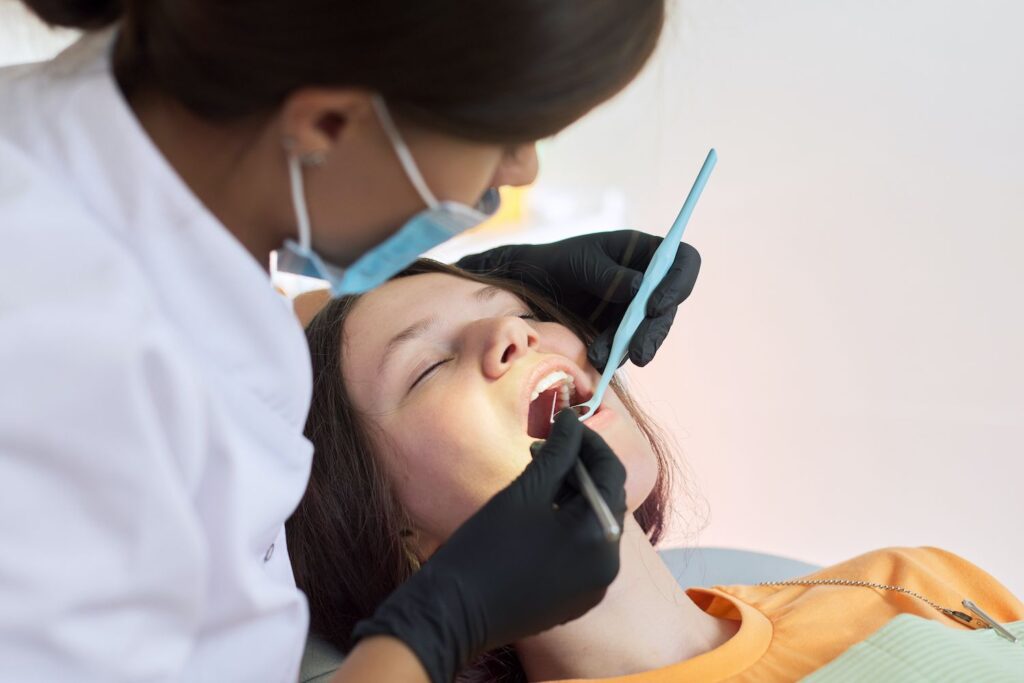Wisdom teeth have intrigued scientists and patients alike for centuries. You may have only heard about them in the context of getting them removed. Since many people need a dentist to remove their wisdom teeth, a lot of patients question the purpose of wisdom teeth. Without removal, some patients can experience complications and pain. However, there are patients that can successfully keep their wisdom teeth. These late-blooming molars bring forth many questions and confusion. Luckily, your dentist is here to help and provide insight.

The Arrival of Wisdom Teeth
Typically, patients can expect their wisdom teeth to erupt between the ages of 17 and 25. Most people associate this stage in life with a newfound maturity. In fact, this is how these molars get their name–wisdom teeth. However, you may hear your dentist refer to them as the third molars. While most people have these molars come in their early adult years, it is possible for them to erupt earlier or later. On the other hand, there are patients who never develop their wisdom teeth.
Most people have four wisdom teeth. They will have two on the upper jaw and two on the lower jaw. Wisdom teeth are the final set of teeth to erupt from the jaws. This means that they will be all the way in the back of your mouth.
The Purpose of Wisdom Teeth
Because many people need wisdom tooth removal, you may wonder why we even have these teeth. To understand this, we need to look at our teeth from an evolutionary perspective. In ancient times, human diets were tough and more abrasive. This would eventually lead to excessive tooth wear. As a result, the wisdom teeth would serve as replacements for worn-out teeth. Our ancestors would still be able to grind their rough foods.
As we evolved to more modern farming practices, our teeth and jaws began changing. We no longer needed the extra teeth and larger jaws. With advancements in cooking and food processing, our diets are now softer and easier to chew. This means that we no longer need wisdom teeth for survival. Therefore, our jaws are now smaller than our ancestors. This brings us to why some people have problems with their wisdom teeth.
Potential Problems
The modern human jaw is often smaller than that of our ancestors. This can lead to insufficient space for wisdom teeth to erupt properly. Unfortunately, this can cause many different dental problems, including:
- Impacted Wisdom Teeth:Wisdom teeth may become impacted. An impacted tooth is one that becomes trapped beneath the gums or bone. One issue with impacted teeth is that they can cause severe pain and discomfort. Additionally, you can develop aninfection with an impacted tooth. Finally, an impacted tooth can cause damage to your nearby teeth.
- Crowding and Misalignment:The eruption of wisdom teeth can disrupt the alignment of existing teeth. This can cause your teeth to shift, leading to crowding and misalignment. Of course, crowding and misalignment can lead to many other dental concerns.
- Infection and Decay:Partially erupted wisdom teeth can create pockets where bacteria thrive. Over time, this can potentially lead to infection and decay.
- Cysts and Tumors: In rare cases, impacted wisdom teeth can cause cysts or even benign tumors in the jawbone. These growths can damage surrounding bone and teeth if left untreated.
- Gum Disease: When wisdom teeth partially erupt, a flap of gum tissue can remain over the tooth and trap food and bacteria. This can cause pericoronitis, which is a painful condition that causes swelling, infection, and bad breath.
- Sinus Pressure and Pain: Upper wisdom teeth that grow improperly may push against the sinuses. This causes congestion, pressure, or sinus pain.
- Difficulty Cleaning: Because wisdom teeth are at the back of the mouth, they’re harder to reach with a toothbrush and floss. This makes them more prone to cavities and gum disease.
- Bone Loss: Impacted or infected wisdom teeth can contribute to bone loss in the jaw, weakening the surrounding teeth and altering facial structure over time.
- Jaw Stiffness and TMJ Issues: Misaligned wisdom teeth can affect bite alignment. They can cause jaw pain, stiffness, or even temporomandibular joint (TMJ) disorders.
- Damage to Adjacent Teeth: Wisdom teeth that grow at an angle can push against neighboring molars. This can cause cracks, enamel wear, or even root damage.
- Chronic Headaches: The pressure from impacted or misaligned wisdom teeth can contribute to tension headaches or migraines.
Why Some People Keep Their Wisdom Teeth
Not everyone needs their wisdom teeth removed. In fact, some people have enough space in their jaws for these molars to grow in properly without causing any issues. If wisdom teeth come in straight, align well with the rest of the teeth, and can be cleaned effectively, a dentist may recommend keeping them.
Regular check-ups and X-rays help monitor their condition over time. However, even if they don’t cause immediate problems, wisdom teeth can still pose risks later in life, so ongoing dental supervision is still important. Visit Coastal General Dentistry today to get your wisdom teeth checked out and for recommendations. Give Dr. Sinclair or Dr. Reichley a call at 757-216-9914 or request an appointment online anytime.

